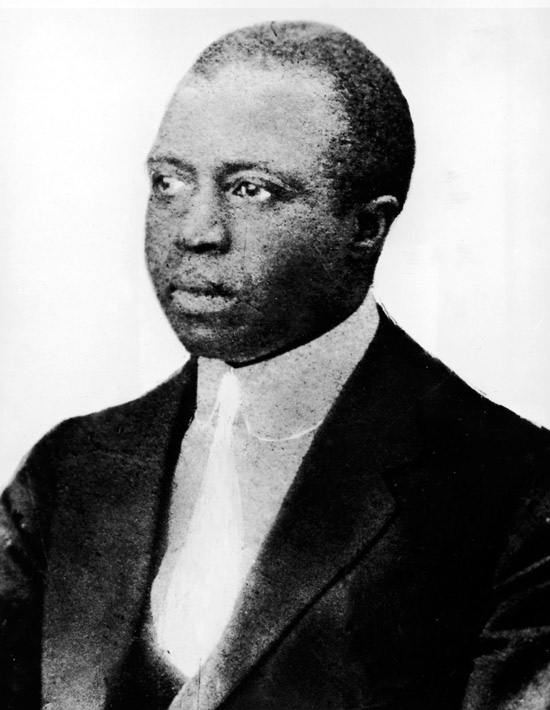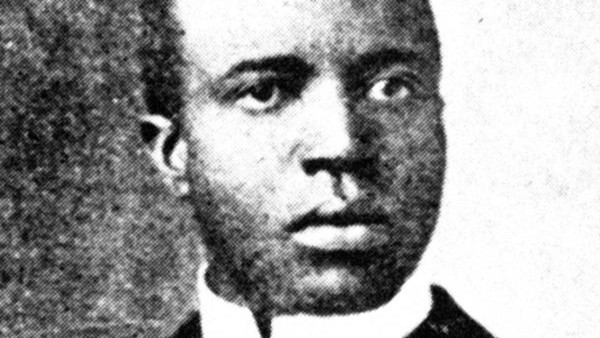Ragtime Piano : SCOTT JOPLIN . " The Entertainer "
RAGTIME
In the discussion about the origins of jazz, ragtime has always played a large role. To add to the confusion, the music which was later classified as archaic jazz also claimed the name of 'ragtime'. At the end of the nineteenth century, ragtime not only stood for a more or less clearly definable piano style, but was also used as a general word for what was derogatorily labelled 'nigger music'. In general, there is a definite division between the jazz forms and ragtime. In ragtime there is no improvisation, as there is in jazz. But like jazz, ragtime comprised pieces based on surviving folk songs, plantation songs, Civil War songs, marches, work songs and ballads. However they were strongly stylised and arranged in a European chamber music form. One remarkable feature is the syncopation taken from black dance music. Ragtimes with their rigid structure of 8 and 16 beat periods - often not only resembled European dance music, such as the march, polka and quadrille in form, but rhythmically and melodically as well. The 214 time beat repeatedly occurs. Ragtime was not black America's first or most important musical contribution to the national music. However as a composed and published art form at the beginning of the twentieth century, ragtime had a greater influence on the culture of white America, and also on the 'art music' of Europe, than jazz.


Scott Joplin, composer and pianist
Scott Joplin, composer and pianist, called the "King of Ragtime," born about 1867


Scott Joplin, composer and pianist
Scott Joplin, composer and pianist, called the "King of Ragtime," born about 1867